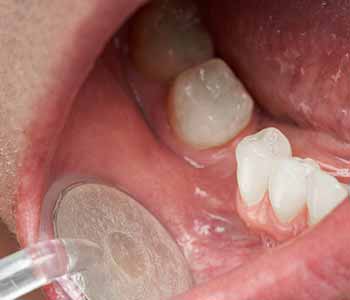
15
Jun
How periodontal treatment in Lakewood can benefit your smile and your whole body

Periodontal treatment is necessary to reverse the effects of gum disease, which affects almost half the population though not everyone may be aware they have it. When so many people who have gum disease don’t even know it, what’s the big deal? Actually, the effects of gum disease can be far worse than people realize, not just for your teeth but for your overall health as well.
Symptoms
Your smile may be affected by gum disease if you suffer from some surprisingly common symptoms. A receding gum line, sensitive teeth, and even chronic bad breath can all be signs that you have gum disease. If your gums are swollen, red, or bleeding when you brush your teeth, it is quite likely that gum disease is the cause. Your gums should be a healthy pink color and your teeth should not look too long or have exposed roots.
Treatments
Periodontal treatments will change depending on the level of gum disease you are experiencing. At the earliest stages, a routine cleaning may suffice, but more often, you will need to have a more intense cleaning known as planing and scaling done to remove all the plaque and tartar. Ozone therapy, botanicals, homeopathy may be helpful in some cases, and if the infection is severe, surgery may be necessary, though many laser treatments make this option more tolerable. We try our very best to avoid surgery if at all possible. Get help now while you have options!
Benefits
The benefits of getting the right treatment for your periodontal (gum) disease as early as possible are numerous. First, treating gum disease means that you may save your smile from tooth loss, which many people don’t know is often a result of gum disease. This means your whole smile can stay healthy and attractive for much longer. Secondly, your whole body’s health can benefit from having gum disease treated. Gum disease has been linked to other serious health problems such as heart disease and blood sugar problems, so getting treatment will mean that your overall health may benefit in the end as well.
If you’re not sure that your smile is free from gum disease, visit our office in Lakewood for a diagnosis and for appropriate periodontal treatment.
 Connect with Dr. Scott Stewart on Twitter
Connect with Dr. Scott Stewart on Twitter
Dr. Scott Stewart - South Lakewood Dental
Dr. Scott Stewart is a practitioner of dentistry for over 25 years and has acquired much expertise over the years. Along with his talent, Dr. Stewart appreciates the multitude of contributions made to the field of dentistry via novel and progressive technology.Whilst being passionate about his service to the community, Dr. Stewart is a revolutionary in his approach to tackling dental health care issues. He is a firm believer in the harmonious balance of the body as opposed to treating symptoms. He emphasizes on the holistic practice of wellbeing and addressing underlying issues to make the “whole person” healthier.



